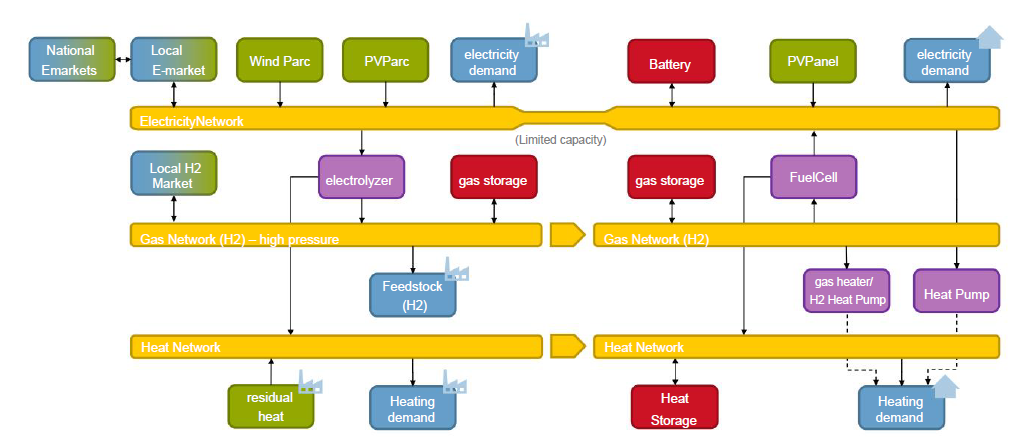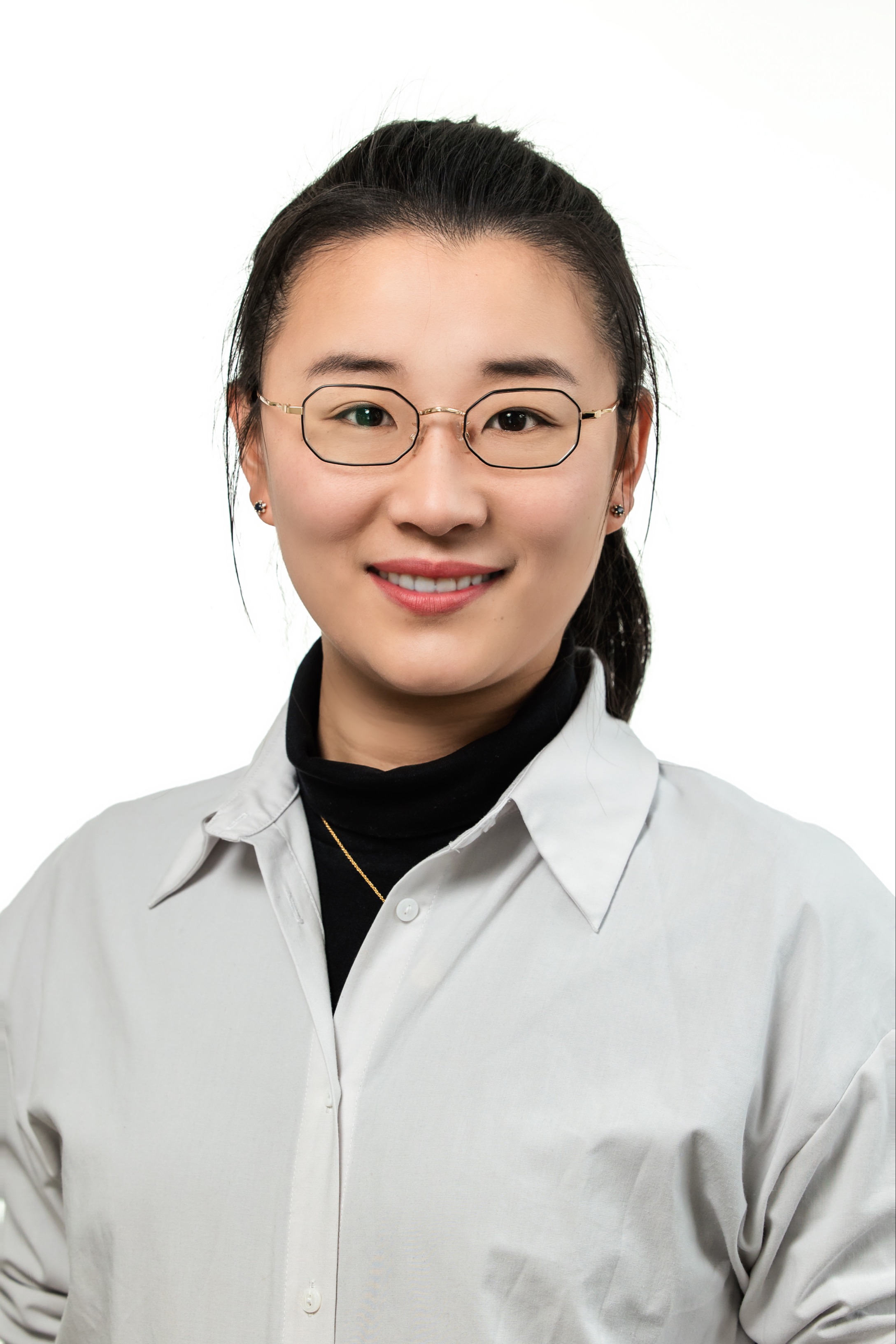SynergyS
Smart multi-commodity eNERGy sYstemS
Overview

In the SynergyS project, we will design, develop and test the operating systems of a multi-commodity energy system. We do this in a representative part of the national energy system, namely an industrial cluster (Groningen Seaports) and a cluster in the built environment (Leeuwarden area), which we realize on the scale in a real-life experimental environment at the labs of TU Delft (The Green Village) and the Hanze University of Applied Sciences (EnTranCe), supplemented with digital replicas of the energy infrastructure.
Project Description
Renewable sources such as wind and solar are installed at all levels of the energy system. The intermittent character of renewable energy brings many problems to the power grid. In order to accommodate more renewable energy, the storage and conversion (flexibility) of renewables into heat and gas is necessary. The aim of the SynergyS project is to develop and test a smart control system for multi-commodity energy systems (MCES).
The control system includes the implementation of the (local) markets, the optimization algorithms used by the market players and the control of the physical components and digital replicas. A local market will be set up for hydrogen and electricity. The latter contains a link with the national electricity markets. Mutual heat supply agreements between actors constrain the hydrogen and electricity markets. Owners/operators of the various energy assets and/or subsystems in the system are active in the markets and represent their interests through sophisticated bidding strategies. The market orders lead to a control signal (setpoints or schedules) to the energy assets. To enable physical control, a supervisory control platform is being built consisting of sensor technology, connectivity, data acquisition and a data warehouse.
The project's main activities are: 1) realization of a physical scale model of an MCES based on electricity, hydrogen and heat, 2) setting up a market-based control system linked to existing markets and their actors, 3) specification and implementation of the IT system on which the control runs, 4) developing evaluation criteria and events with which a stress test can be carried out at the MCES, 5) conducting experiments with evaluations Improvements, and 6) translation to the Dutch energy system.
Intended deliverables
• A working control system to integrally control MCES in industry and residential setting
• A market-based control system representing existing and new markets and their actors
• Algorithms for (self-regulating) control decisions and monitoring and control software.
Project Partners
Hanze University Groningen, University of Groningen, TNO, Groningen Seaports, Emerson, GAIN, Enshore, Energy21, D4
TUD Team

A. (Aihui) Fu
Aihui Fu is a postdoctoral researcher in self-organizing smart grid control, renewable energy integration, power system operation and energy management system design. She has experience working with the projects of self-organizing voltage regulation, Easy-res, Illuminator, SHPLES and SynergyS to solve the energy transition challenges.
